Muhammad Abdullah Anwar: Management Assignment - Functions & History
VerifiedAdded on 2021/05/29
|6
|864
|400
Homework Assignment
AI Summary
This assignment provides a detailed overview of management, encompassing its core functions, levels, and historical development. It begins by defining management as the process of coordinating and administering organizational affairs to achieve objectives efficiently and effectively. The assignment then explores the five key functions of management: planning, organizing, staffing, directing, and controlling, explaining the role of each in achieving organizational goals. It also outlines the three primary levels of management: top-level, middle-level, and lower-level, and the responsibilities associated with each. Furthermore, the assignment traces the history of management, highlighting its evolution from ancient times through the 19th, 20th, and 21st centuries, noting the influence of industrialization, the emergence of large corporations, and the rise of formal management education. The assignment also discusses the contributions of various fields such as psychology and sociology to management theory. This resource is available on Desklib, a platform offering students access to study tools like past papers and solved assignments.
1 out of 6

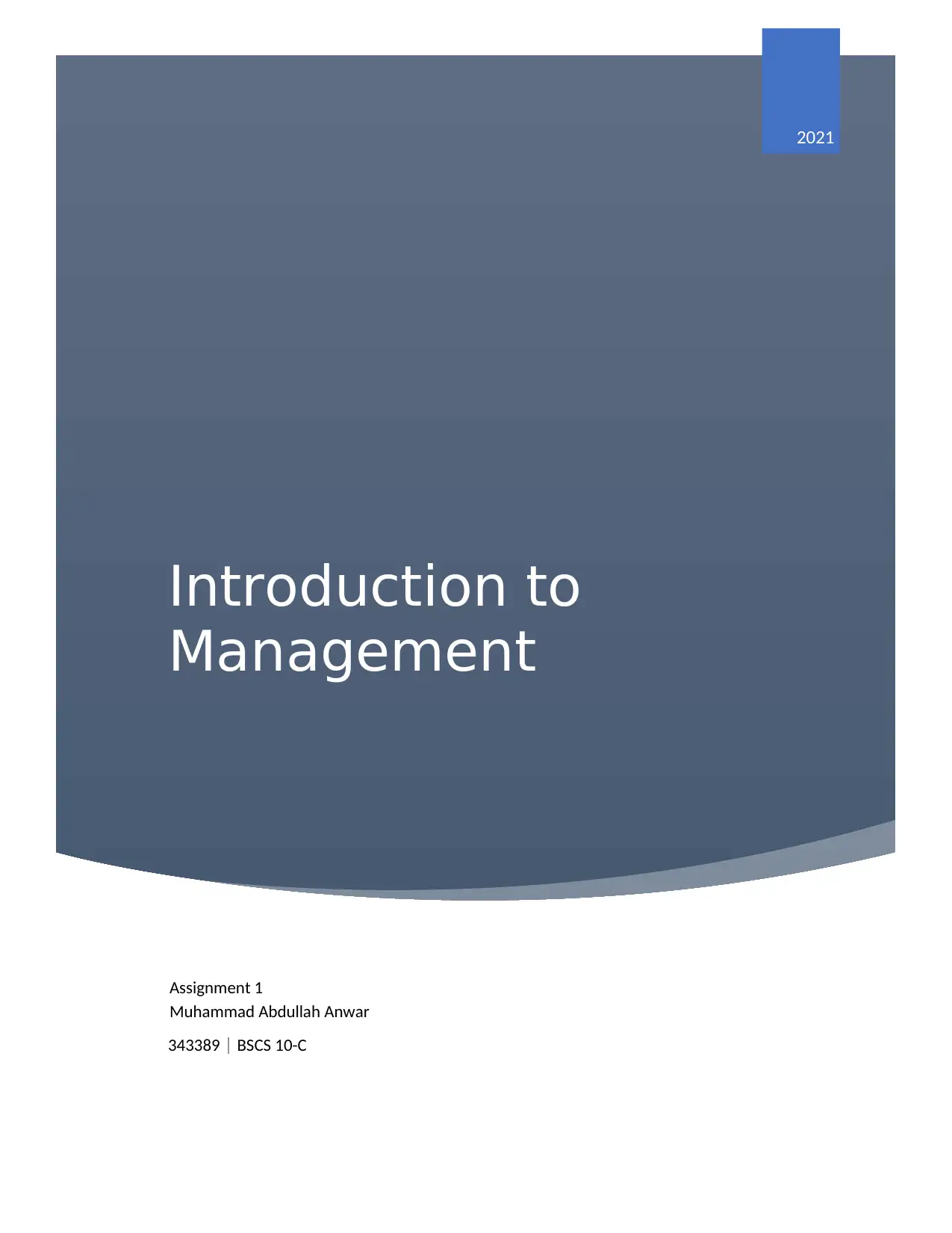
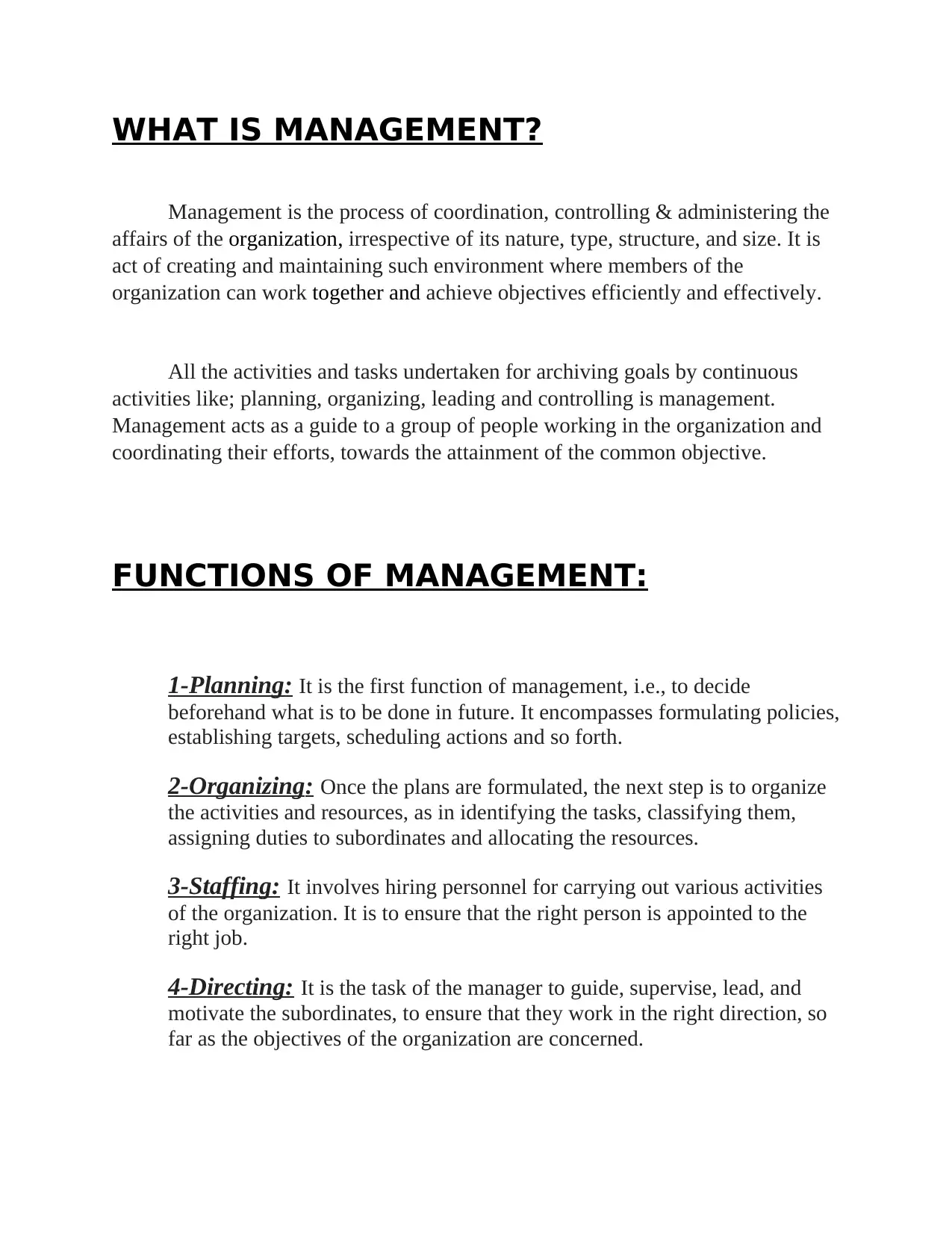

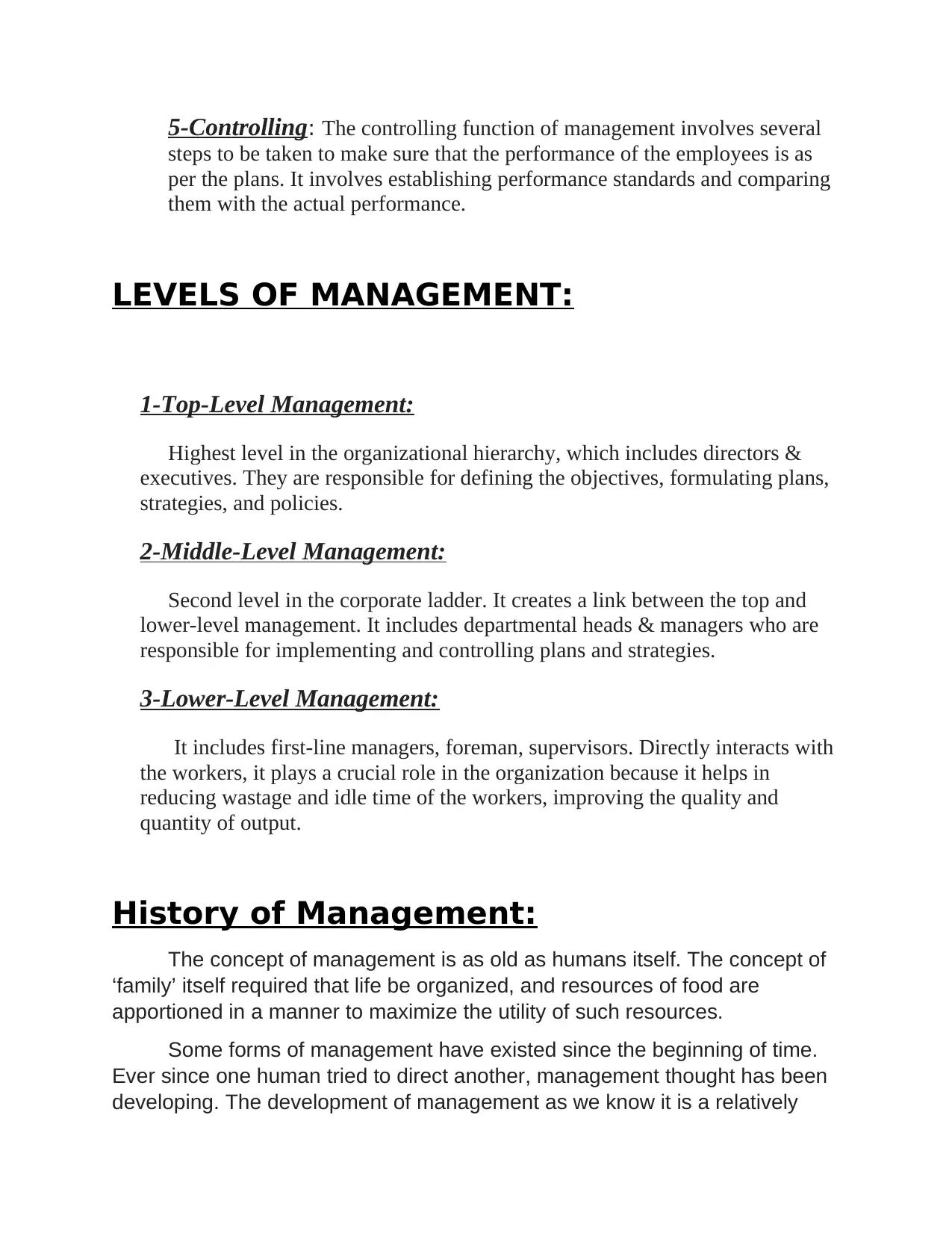
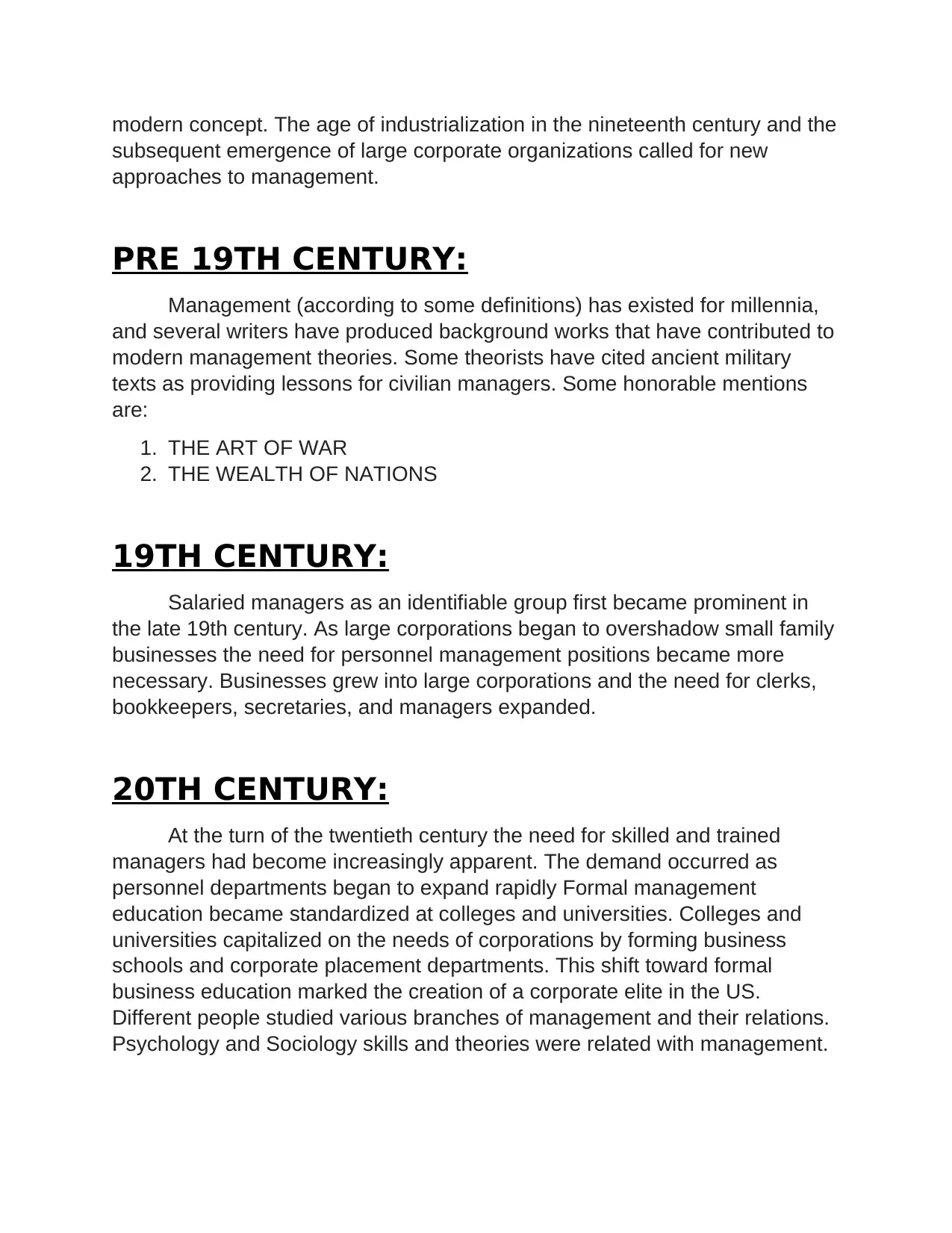
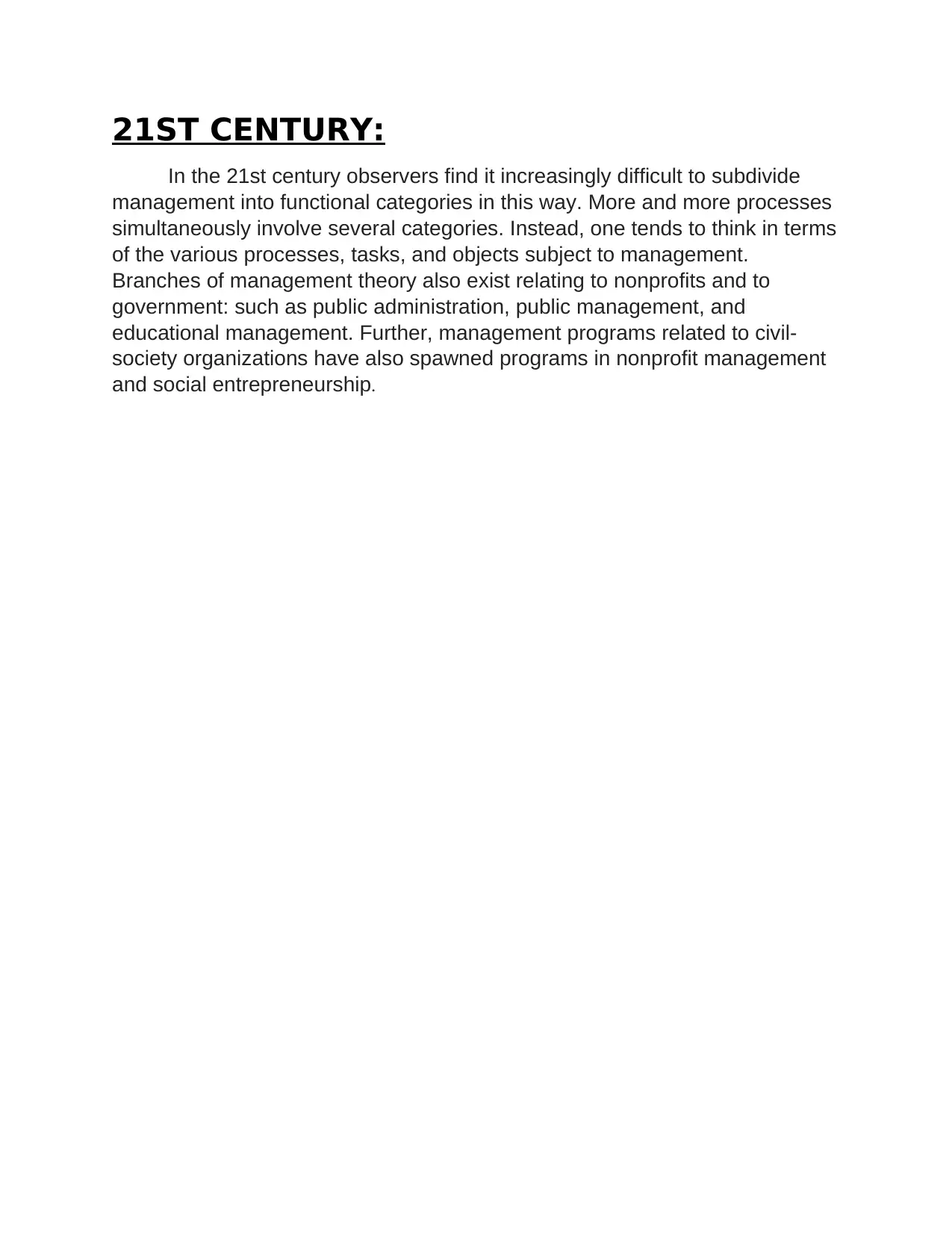






![[object Object]](/_next/static/media/star-bottom.7253800d.svg)